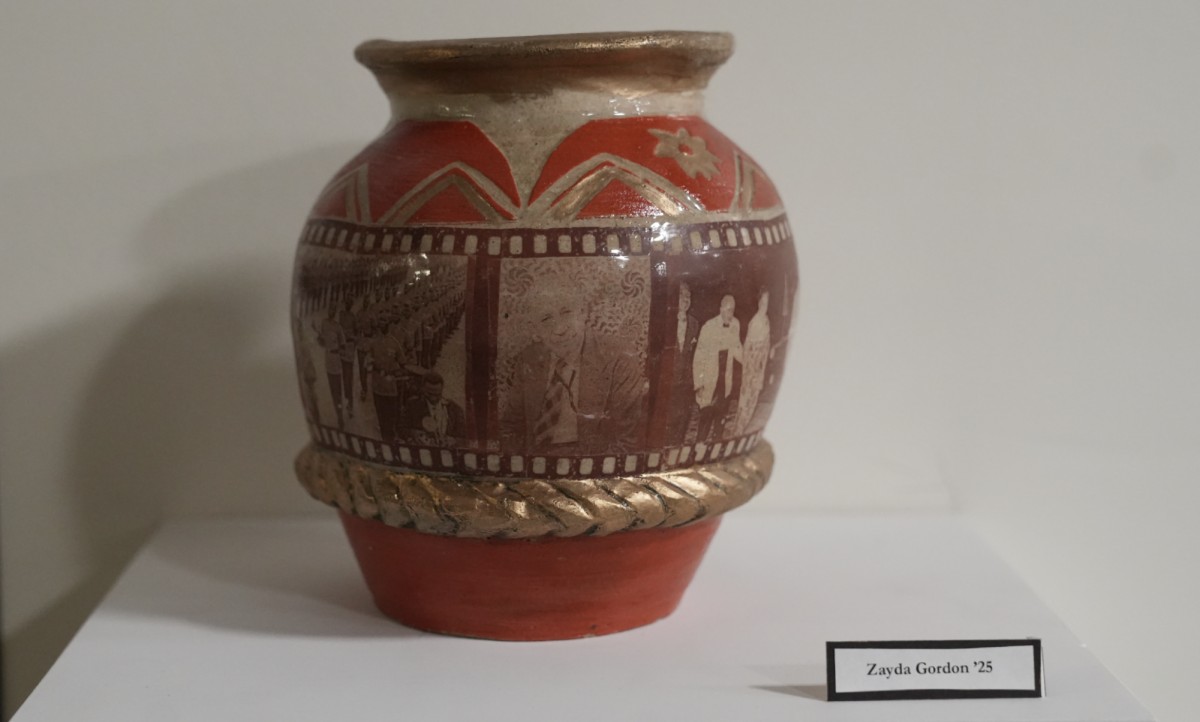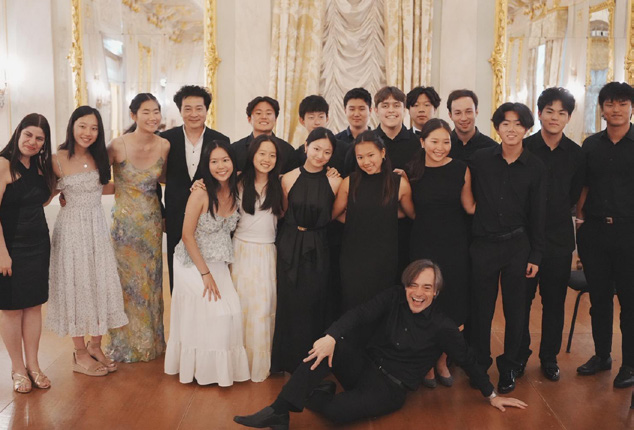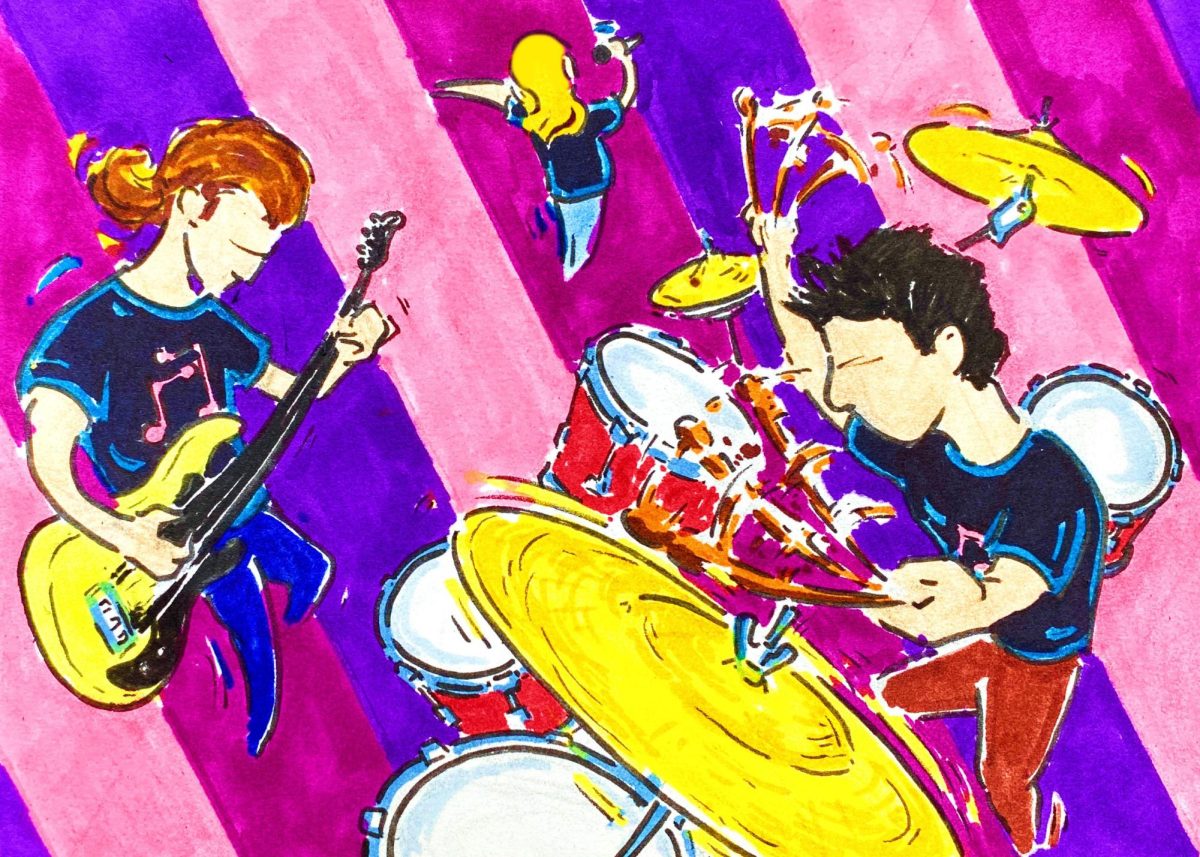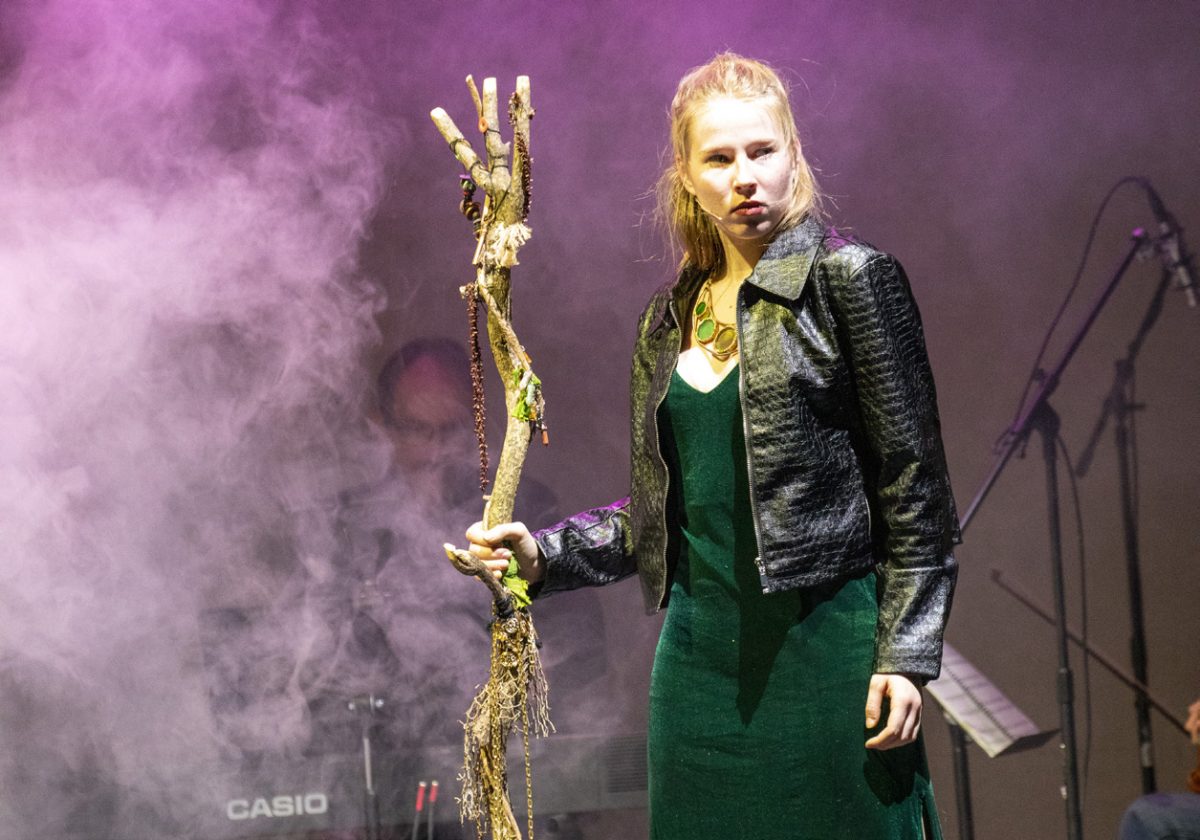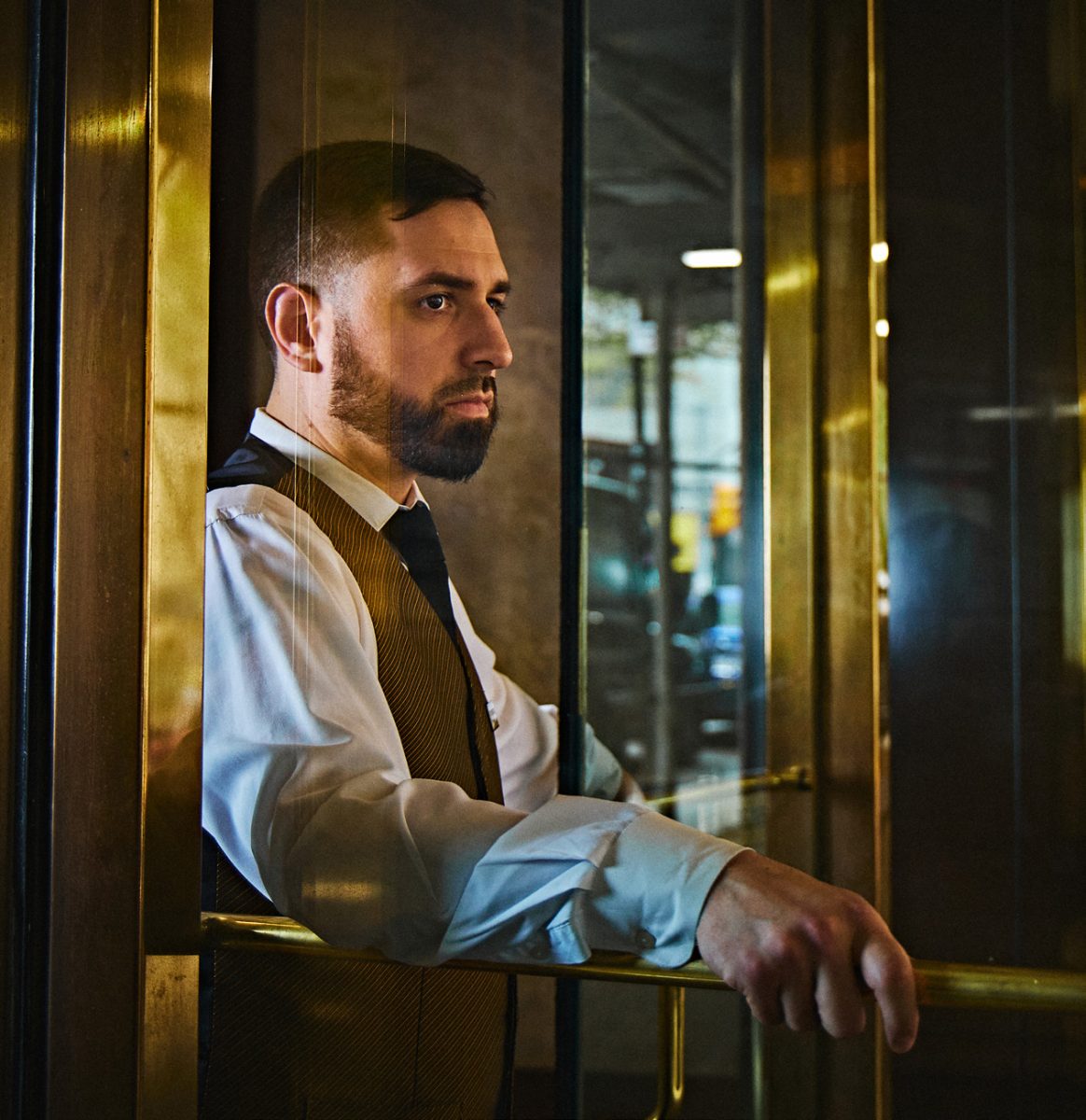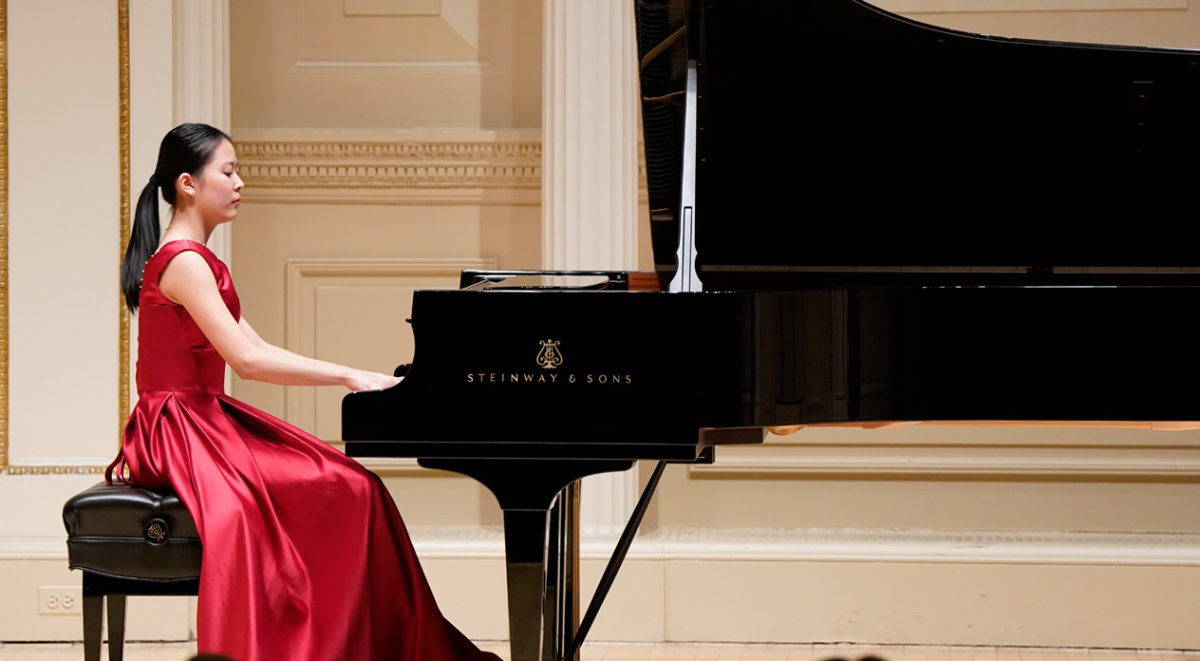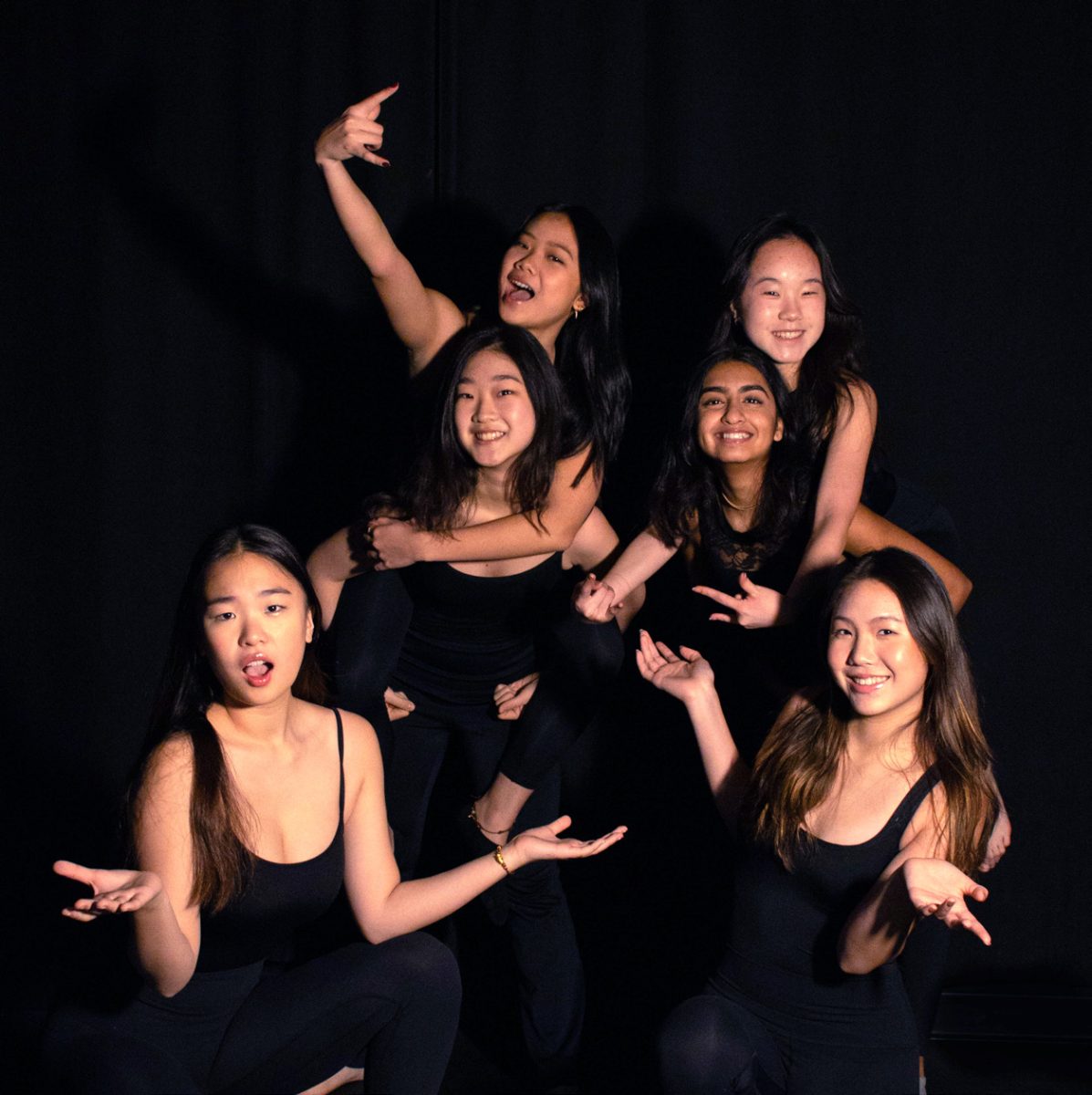As part of the school’s celebrations of Black History Month, Jacquo Pierre ’24 and Angel Allen ’24 curated an exhibition of poetry and art outside Cullman Art Center, which opened on February 28. The exhibit, entitled “BLK HKISS,” continues a tradition started last year by the editors of BLAC (Black Literature and Arts Collective) magazine, who curated an exhibition with other schools.
According to the organizers of BLK HKISS, the exhibit “provides our community with a window into [students’] beautiful brilliant blackness.” Zayda Gordon ’25, board member of the Hotchkiss Black Student Union (HBSU), said, “The exhibit aims to acknowledge the art made by some of our Black students, even though not all of the art has to do with being Black.”
The exhibition features Gordon’s ceramic piece, A Memoir to Ghana, which was inspired by her mother’s Ghanaian heritage. Using symbols and design techniques from traditional Ghanaian pottery, the piece reflects on and responds to W.E.B. Du Bois’s 1960 poem “Ghana Calls.”
Marcus McGregor ’26 exhibited a photo entitled “An Awkward Tolerance.” The work shows his little brother sitting on the wreckage of a car abandoned in the woods. McGregor said, “I wanted to capture climate change and how it impacts the youth. It’s meant to be a critique of consumerism and young people’s suffering at the hands of older generations.”
Four works of poetry were included in the exhibition. Allen’s free-verse poem “Ode to my curly hair” describes her complex relationship with her curly hair as a piece of her cultural identity. She writes, “[my curls] represent more than just / what keeps me warm by preserving heat / empowering me to embrace the beauty of my culture / and allow me to express myself in ways / i never thought possible.”
The gallery exhibition is part of HBSU’s and the DEI Office’s programing celebrating Black History Month. Angel Allen ’24, co-head of HBSU said, “While we celebrate Black joy and appreciate Black culture, it is important to remember the struggles that the Black community continues to face and how the Black struggle is often ignored even when people ‘appreciate’ Black art.”
Dhruv Kothari ’25, co-head of the DEI Council, said, “What I really hope people will take away from these events is that we should experience and celebrate [other people’s] culture and art and help make sure they’re able to feel comfortable expressing it.”

